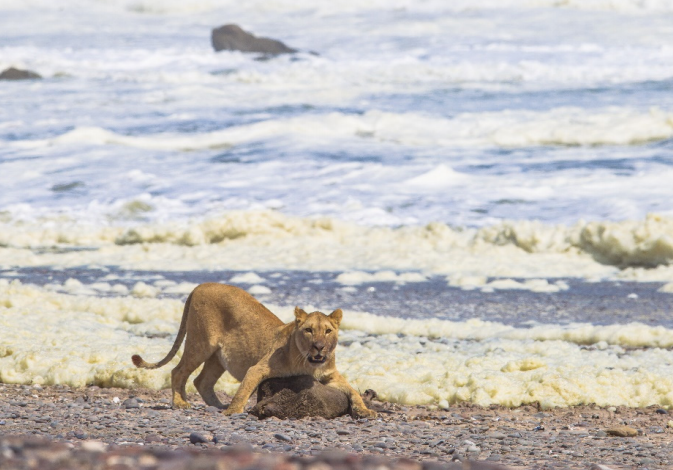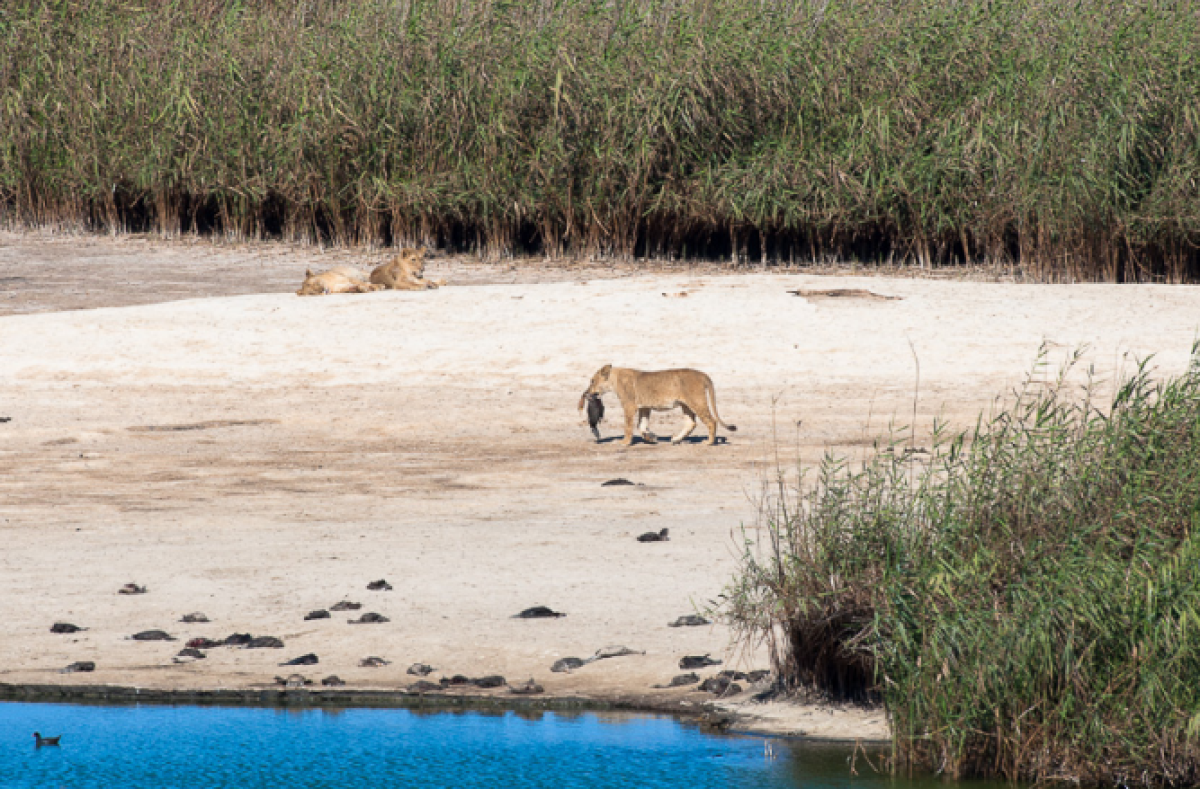
Lions living in a national park in Namibia have been observed hunting and eating marine creatures, with two prides now regularly feasting on seals, cormorants and the occasional flamingo. For three lionesses studied, these food sources made up 79 percent of their diet.
The behavior was documented by P.E. Stander, a scientist who has spent over 35 years studying the desert lions of Namibia. In the 1980s, humans living on the borders of the Skeleton Coast National Park were in constant conflict with the wildlife. Lions would raid livestock and farmers would retaliate by shooting and poisoning them. By 1990, all of the lions in Skeleton Coast had been killed.
However, in 1997, a small population of lions specially adapted for living in desert conditions was discovered on the eastern edge of the Namib and—thanks to changes to tourism and conservation practices—they made their way back to the national park. By 2002, populations had started to recover. In his paper, published in the Namibian Journal of Environment, Stander reports that the lions living in Skeleton Coast have finally rediscovered the "rich marine food resources that their predecessors utilised in the 1980s," Stander wrote.
Researchers monitored the diet of the lions by various tracking techniques. In 2006, scientists got the first confirmed evidence of the consumption of marine life, with a lioness eating a Cape fur seal. Over the following decade, this behavior was observed another nine times. It appears these occasions were either the result of scavenging or an opportunistic hunt, rather than the lions deliberately targeting the seals.
However, this changed at the end of 2016, when poor rainfall made conditions difficult for the lions. At this point, both prides started utilizing the marine resources and hunting seals regularly.

In March 2017, three young lionesses that had lost their mother when they were just a year old started hunting cormorants. "Driven by hunger and desperation, the young lionesses found their way over the dunes and swam onto an island at a fresh-water spring near the coast," Stander wrote. "Here they started killing cormorants that roost on the island at night. They became skilled in hunting a wider range of wetland birds, including flamingos and redbilled teals. The large numbers of resident Cape and white-breasted cormorants provided them with a nutritious and reliable marine diet."
Stander said that marine species made up 79 percent of the lionesses' diet and 86 percent of the biomass consumed during the observation periods.
Concluding, he said: "As a species, lions are now on the list of maritime mammals, as the largest of the coastal carnivores, that prey on marine organisms …
"[The lions have] found a rich and reliable marine resource that can provide then with an important source of energy. Preliminary observations of lions investigating and foraging along the intertidal zones suggest that they may learn to prey on other marine organisms, like shellfish, crabs or sea turtles. The intertidal zones along the Skeleton Coast provide a rich source of energy that the Desert lion population could rely on when their traditional terrestrial food resources are low."
According to the IUCN Red List, lions are considered as a vulnerable species with between 23,000 and 39,000 mature lions living today. The African Wildlife Foundation says the total population has fallen by 43 percent over the last 21 years, with human conflict posing one of the biggest threats to the species.
Uncommon Knowledge
Newsweek is committed to challenging conventional wisdom and finding connections in the search for common ground.
Newsweek is committed to challenging conventional wisdom and finding connections in the search for common ground.
About the writer
Hannah Osborne is Nesweek's Science Editor, based in London, UK. Hannah joined Newsweek in 2017 from IBTimes UK. She is ... Read more
To read how Newsweek uses AI as a newsroom tool, Click here.








